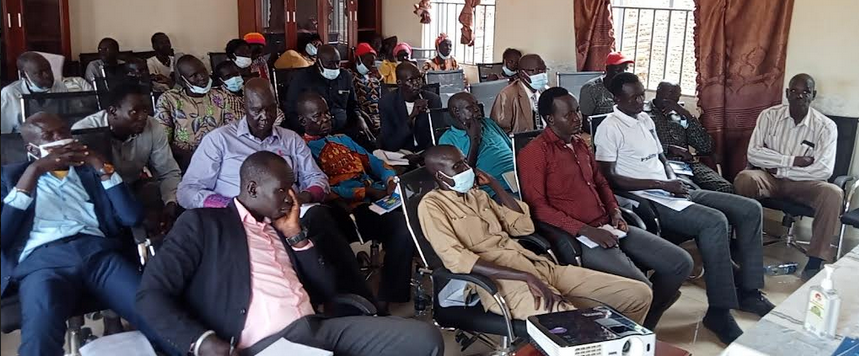A two-day conflict management training funded and organized by the United Nations Mission in South Sudan (UNMISS) concluded in Aweil Town in Northern Bahr el Ghazal State on Wednesday.
The head of the Civil Affairs Division at UNMISS’ Aweil office, Maria Inecita Montero, said they achieved their objectives and that the selected partners will advance peace and address local conflicts.
“We have achieved our aim of building the capacity of the appointed or selected members of the joint border peace committee,” she said. “I am happy to say that the state government, the South Sudan Peace and Reconciliation Commission and the peacebuilding ministry have identified key members of the joint border peace committee who are most importantly participants who were able to do the work plan on how they shall move forward with the work to advance the peace and address issues relating to cattle migration.”
Meanwhile, the Director-General in the ministry of peacebuilding, Peter Tong, commended UNMISS for funding the training and related activities, which he said the government cannot support due to financial constraints.
“We thank the UN representatives, particularly the United Nations Mission in South Sudan, for a job well done,” he said. “We, the government, especially the peacebuilding ministry, do not have funds to sponsor such events, but they assisted us in paying for transport fares, the conference room and other small things, including tea and feeding.”
The 45 members of the joint border peace committee drawn from Aweil South County and Aweil Municipality participated in the training and pledged to share the knowledge they acquired with members of their respective communities.
Marko Manut,a trainee, appreciated UNMISS for the training and said they learned a lot.
“We are delighted and thankful to UNMISS for this peacebuilding training because we learned a lot of things in a way that we will be able to disseminate the peace to our community,” he said. “We can now carry out reconciliation in our communities, and we have also learned about the role of community policing in the absence of the government.”
Another peace committee member who participates in the training, Gabriel Goma Wol, would now be able to resolve family and local conflicts.
“We have understood many things from the workshop on how to resolve family problems, how conflicts between individuals and communities and villages are addressed by coming together and exhausting the matter,” said Goma. “If a problem happens between you and your brother, there is no reason to kill him, but you sit down together and peacefully handle the issue.”




